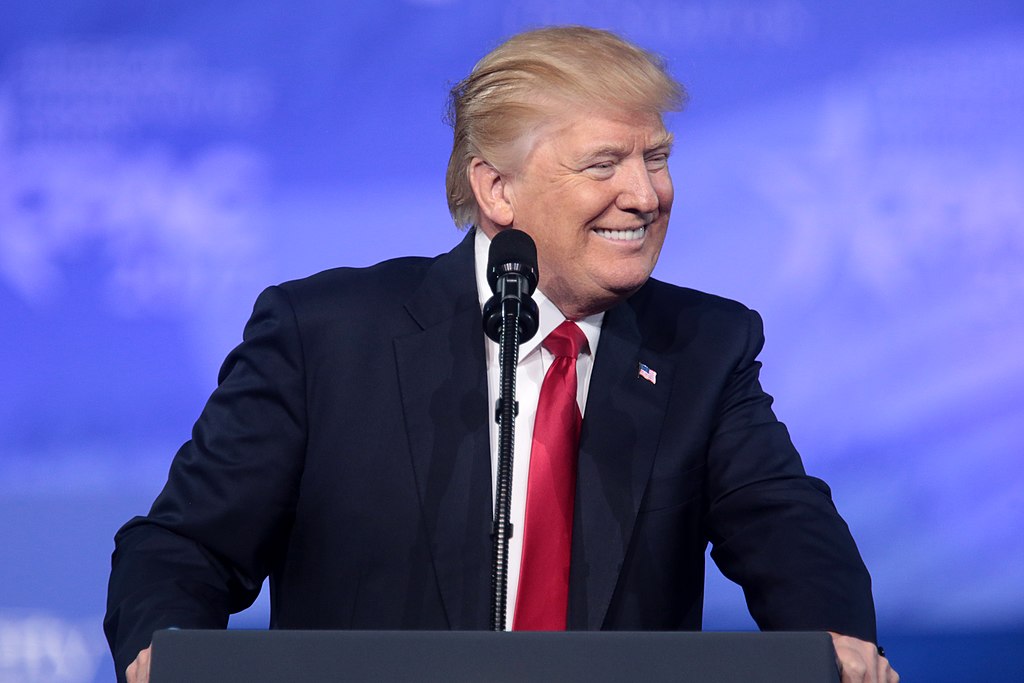As President Donald Trump embarks on his second term in 2025, his administration is implementing significant changes to the United States' involvement in the North Atlantic Treaty Organization (NATO). These policy shifts are prompting widespread concern among allies and defense experts.
Demand for Increased Defense Spending
A central aspect of Trump's NATO strategy is his insistence that member nations increase their defense expenditures. He has reiterated that the U.S. will not continue to shoulder a disproportionate share of the alliance's financial burden. This stance has led to heightened tensions within NATO, as some member countries struggle to meet the 2% of GDP defense spending target.
Reevaluation of U.S. Military Commitments
The administration is reassessing the deployment of U.S. forces in Europe. Discussions include potential troop reductions in Germany and other NATO countries, aiming to realign military resources with the administration's strategic priorities. Critics argue that such moves could weaken the alliance's deterrence capabilities against adversaries like Russia.
Controversial Statements and Reactions
President Trump's remarks questioning the automatic defense of NATO allies have sparked controversy. He has suggested that U.S. support could be conditional on allies fulfilling their financial obligations. These statements have raised concerns about the reliability of the U.S. commitment to collective defense, a cornerstone of NATO's founding principles.
European Response and Strategic Adjustments
In response to the U.S. policy shifts, European nations are exploring measures to bolster their own defense capabilities. Initiatives include increased defense spending, development of independent military assets, and strengthening regional security collaborations. These efforts aim to reduce reliance on U.S. military support and ensure the continent's security amidst evolving geopolitical dynamics.
Implications for Transatlantic Relations
The administration's approach to NATO is influencing broader transatlantic relations. Allies express concerns about the future of U.S. leadership within the alliance and the potential impact on global security structures. Diplomatic efforts are underway to address these issues and maintain cohesion among member states.
Conclusion
President Trump's 2025 NATO policies represent a significant shift in the United States' approach to the alliance. By demanding increased financial contributions from allies and reevaluating military commitments, the administration seeks to redefine the U.S. role within NATO. These developments are prompting critical discussions about the future of transatlantic security and the resilience of longstanding international partnerships.



 Trump Says U.S.-UK Relationship Has Deteriorated After Starmer Hesitates on Iran Strikes
Trump Says U.S.-UK Relationship Has Deteriorated After Starmer Hesitates on Iran Strikes  U.S. Deploys Tomahawks, B-2 Bombers, F-35 Jets and AI Tools in Operation Epic Fury Against Iran
U.S. Deploys Tomahawks, B-2 Bombers, F-35 Jets and AI Tools in Operation Epic Fury Against Iran  Australia Rules Out Military Involvement in Iran Conflict as Middle East Tensions Escalate
Australia Rules Out Military Involvement in Iran Conflict as Middle East Tensions Escalate  Pentagon Downplays ‘Endless War’ Fears After U.S. Strikes on Iran Escalate Conflict
Pentagon Downplays ‘Endless War’ Fears After U.S. Strikes on Iran Escalate Conflict  Iran Detains U.S. Citizens Amid Escalating Conflict With the United States and Israel
Iran Detains U.S. Citizens Amid Escalating Conflict With the United States and Israel  Trump to Attend White House Correspondents’ Dinner 2026, Ending Long Boycott
Trump to Attend White House Correspondents’ Dinner 2026, Ending Long Boycott  Middle East Conflict Escalates After Khamenei’s Death as U.S., Israel and Iran Exchange Strikes
Middle East Conflict Escalates After Khamenei’s Death as U.S., Israel and Iran Exchange Strikes  UK Accepts U.S. Request to Use British Bases for Defensive Strikes on Iranian Missiles
UK Accepts U.S. Request to Use British Bases for Defensive Strikes on Iranian Missiles  Zelenskiy Urges Change in Iran After U.S. and Israeli Strikes, Cites Drone Support for Russia
Zelenskiy Urges Change in Iran After U.S. and Israeli Strikes, Cites Drone Support for Russia  Melania Trump Chairs Historic U.N. Security Council Meeting on Children Amid Iran Conflict
Melania Trump Chairs Historic U.N. Security Council Meeting on Children Amid Iran Conflict  Supreme Court Backs GOP Lawmaker in New York Redistricting Fight Ahead of Midterms
Supreme Court Backs GOP Lawmaker in New York Redistricting Fight Ahead of Midterms  Failure of US-Iran talks was all-too predictable – but Trump could still have stuck with diplomacy over strikes
Failure of US-Iran talks was all-too predictable – but Trump could still have stuck with diplomacy over strikes  EU Urges Maximum Restraint in Iran Conflict Amid Fears of Regional Escalation and Oil Supply Disruption
EU Urges Maximum Restraint in Iran Conflict Amid Fears of Regional Escalation and Oil Supply Disruption  Trump Says U.S. Combat Operations in Iran Will Continue Until Objectives Are Met
Trump Says U.S. Combat Operations in Iran Will Continue Until Objectives Are Met  U.S.-Israel War on Iran Escalates as Gulf Conflict Disrupts Oil, Air Travel and Regional Security
U.S.-Israel War on Iran Escalates as Gulf Conflict Disrupts Oil, Air Travel and Regional Security  Argentina Tax Reform 2026: President Javier Milei Pushes Lower Taxes and Structural Changes
Argentina Tax Reform 2026: President Javier Milei Pushes Lower Taxes and Structural Changes 
































